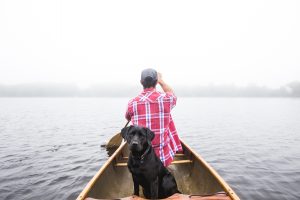International taskforce

Development of IAHAIO’s international Standards of Best Practice in Animal-Assisted Services and Animal Welfare
IAHAIO publishes international guidelines for best practice in animal-assisted services (AAS) which build on the IAHAIO White Paper Definitions for Animal Assisted Intervention and Guidelines for Wellness of Animals Involved, (published in 2014 and revised in 2018), Our approach to developing these guidelines is to establish international, multi-disciplinary task forces, which include our IAHAIO member representatives as well as wider experts in the field.
IAHAIO recognises that excellent work is already taking place in AAS programmes across the globe and that there are good examples of sound protocols that have already been developed. Members of this task force will work together and build on existing good practice and develop international guidelines for future practice, including education and training of people working with animals, animal selection and animal welfare issues.
The IAHAIO international guidelines serve the wider aims of:
- Bringing greater professionalism to the field
- Improve uptake in the field
- Enhance client and public confidence in the field
- Enhance the quality of AAS programmes
Who are the guidelines aimed at?
These guidelines are aimed at practitioners who are delivering AAS, across different settings, client populations and species of animal. IAHAIO acknowledges that differences exist in how AAS is delivered in different countries across the globe, often influenced by cultural and other factors. These guidelines will seek to identify key features of AAS practice that the international AAS community endorse as essential to delivering safe, effective programmes. The guidelines will be based on existing good practice and evidence and research to support this.
What topics do the guidelines cover?
The IAHAIO international guidelines:
- Outline the minimum standards for the delivery of AAS
- Outline ways to protect the welfare of animals involved in AAS
- Describe the appropriate selection of animals involved in AAS
- Identify minimum training standards for animals involved in AAS
- Describe considerations for client selection
- Outline how human health, well-being and safety can be achieved
- Outline key features of effective AAS programme development and delivery
- Describe ways in which AAS programmes can be evaluated and outcomes documented
Members of the task force
IAHAIO wishes to thank all members of its international task forces who have made and continue to make important contributions to the development and updating of its international guidelines. IAHAIO is most grateful for the support and participation of several IAHAIO members and other international experts from across the globe, including USA, Canada, UK, Europe, Eastern Europe, South Africa, Asia, South America and Australia.
Residential and visiting programmes Callie Cozzolino (USA), Andrea Beetz (Germany) Claude Beata (France), Shirley Chen (Taiwan), Marine Grandgeorge (France), Agnieszka Potocka (Poland), Taylor Johnson (USA), Michal Pregowski (Poland), Keiko Yamazaki (Japan), Elizabeth Ormerod (UK), Ann Howie (USA)
Equid programmes: Kathy Alm (USA), Karen Aspery (Australia), Terri Brosnan (Ireland), Nina Ekholm-Fry (USA), Nicky French, Sian Sharples (UK), Helene Viruega (France), Roswitha Zink (Austria)
Resident programmes with farm species programmes: Michael Kaufmann (USA), Bente Berget (Norway), Samantha Hough (USA), Lena Lidfors (Sweden), Maureen McNemara (USA), Ingrid Stephan (Germany), Karen Thodberg (Denmark), Brinda Jegatheesan (USA)
Resident programmes with small animals: Zenith Ng (USA), Katie Bristow (UK), Joan Dalton (USA), Robert Mitchell (USA),
Rainer Wohlfarth (Germany), Jennifer Henley (USA)
Community programmes: Philip Tedeschi (USA), Erica Elvove (USA) and Naoko Yoshida (Japan), Marie-Jose Enders-Slegers (Netherlands), Phyllis Erdman (USA), Belinda Johnston (UK), Alicia Kennedy (Australia), Nancy Parish-Plass (Israel), Hollie Sevenoaks (UK)
IAHAIO also works with a number of expert advisors comprising ethologists, microbiologists, animal welfare specialists and ethicists, who are consulted for specialist advice. Members include:
Animal Welfare
Temple Grandin (USA)
David Fraser (Canada)
Frederick Hurley (South. Africa)
David Morton (UK),
Joy Leney (UK)
Zoonoses
Ian Wright (UK)
Veerasamy Karupunathevar (India)
Clifford Warwick (UK)
Peter Rabinowitz (USA)

